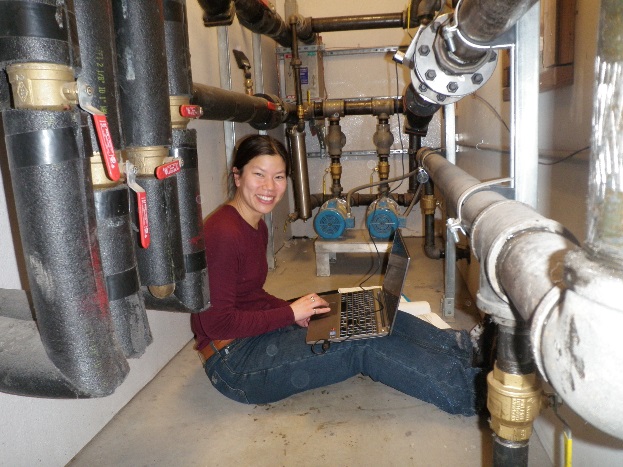ACEP Researcher Helps Gulkana Win Grant

Earlier in the year, Dr. Daisy Huang helped the Gulkana Village Council win a grant from the Alaska Native Tribal Health Consortium (ANTHC) to replace some of the older, inefficient wood stoves in some of the elders' residences with modern, EPA-approved wood stoves. Gulkana is located in a cold, narrow valley that often traps smoke haze in winter, which causes health issues. Replacing the oldest, dirtiest-burning stoves is expected to improve air quality and community health, provide economic savings, and simplify the heating process, which is especially beneficial to community elders whose ability to harvest and manage the logistics of cordwood may be limited.
This week, Dr. Huang’s colleague USDA Forester Dave Nichols will be in Gulkana Village to gather air quality data as a part of the project. Dr. Nicholls will take baseline readings of air quality (efficiency, particulate production) with the old, inefficient stoves and then return to gather the same data when the stoves have been replaced. Any improvement in air quality will be measured and noted.
Photo: Daisy Huang downloads temperature data from installed BTU meters in Gulkana during previous project work there. Photo credit D. Huang, ACEP/UAF.


